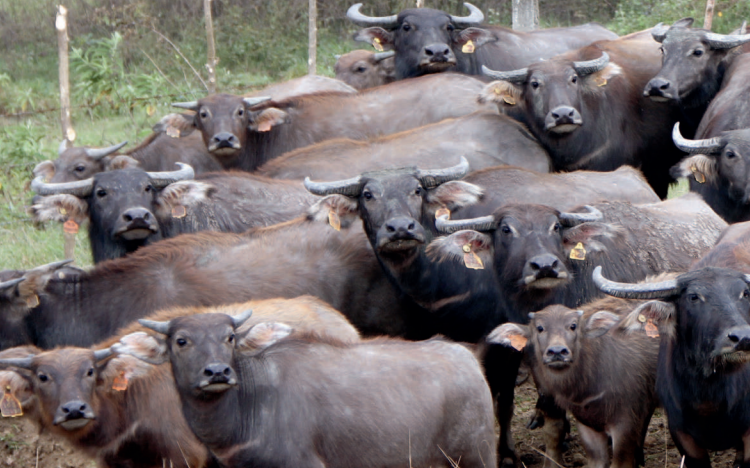DA accredits more Indian meat exporters to widen carabeef source
Agriculture Secretary Francisco Tiu Laurel Jr. has approved the accreditation of 34 Indian companies to supply frozen buffalo meat, known locally as carabeef.
In a news release, the DA chief said the move is aimed at broadening the sourcing options for Philippine food processors and potentially lowering costs for Filipino consumers, particularly for products like corned beef.
Secretary Tiu Laurel said the accreditation of additional Indian meat exporters aligns with his broader vision of attracting more foreign companies to the Philippine market.
“We do not intend to increase imports. What we want is to encourage more foreign companies to compete for our market, which will ultimately drive down the cost of imported agricultural products, benefiting consumers,” he explained.
The list of accredited Indian meat exporters includes the six companies that were initially approved in 2019 and have recently sought to renew their accreditation. The new accreditation will be valid for three years, expiring on December 12, 2027.
Secretary Tiu Laurel confirmed that all 34 Indian exporters had met the necessary requirements. However, 13 of these companies will not be immediately allowed to immediately export carabeef to the Philippines, as their operations are based in three Indian states—Maharashtra, Telangana, and Bihar—where active Foot-and-Mouth Disease (FMD) outbreaks have been reported.

To protect local cattle and livestock, the DA has imposed an import ban on these three states. Imports of carabeef from these regions will be prohibited until India’s National Competent Authority declares them free from FMD.
The DA, however, clarified that it will not grant exemptions for heat-treated products, as the accreditation pertains specifically to the trade in frozen carabeef. Secretary Tiu Laurel stated that if India has a method of boiling carabeef to address FMD concerns—similar to the process Pakistan uses for buffalo meat it exports to China—he would consider allowing such imports.
“If they can do that, I will allow it,” he said.
The accreditation follows a thorough verification process conducted by the DA, including an inspection mission by the Bureau of Animal Industry (BAI) and the National Meat Inspection Service (NMIS). The audit assessed India’s compliance with the Philippines’ animal health and food safety standards.
The BAI team reviewed animal health protocols in seven Indian states—Uttar Pradesh, Punjab, Andhra Pradesh, Haryana, Maharashtra, Telangana, and Bihar. During the inspection, active FMD cases were found in the last three states.
Meanwhile, the NMIS team confirmed that all 34 companies seeking accreditation met international food safety standards, including Good Manufacturing Practices and Hazard Analysis and Critical Control Points.
The DA’s decision to approve increased carabeef imports in 2020 was aimed at supporting local meat processors, who rely on affordable carabeef to produce low-cost corned beef. Currently, the Philippines imports approximately 40 percent of its carabeef needs, as domestic production cannot fully meet market demand.


No comments: